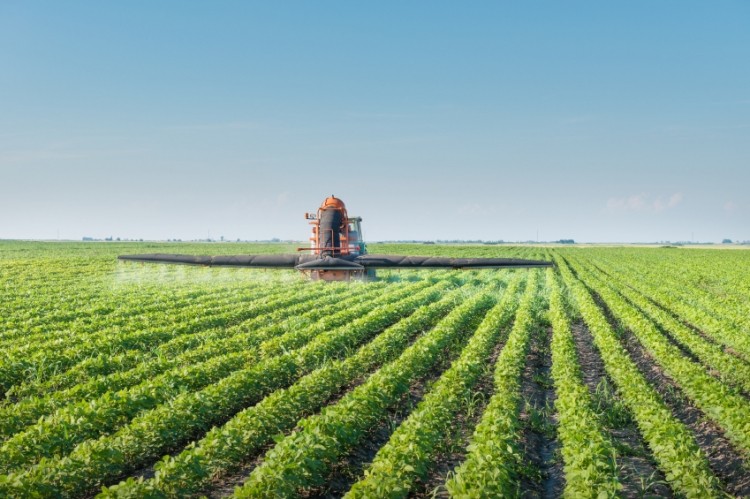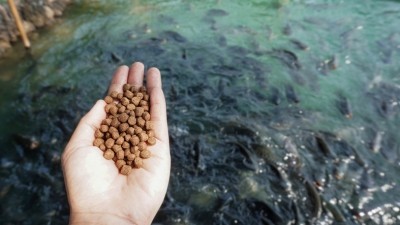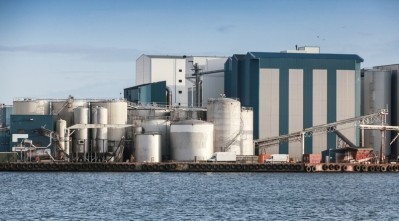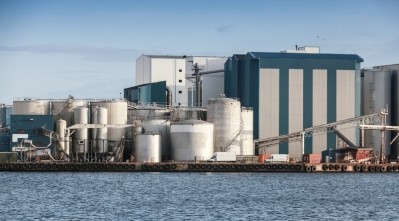Guest Article: IFFO and IFFO RS welcome expansion of sustainability standard across marine and plant ingredients

This is an important step in the aquaculture industry’s effort towards ensuring an entirely sustainable supply chain.
Marine ingredients are the foundation of feed for the aquaculture industry, but a finite annual supply of these ingredients set against a continual growth in feed volumes, has driven the move for supplementation with crude protein and oil from plant ingredients. That [trend] has enabled continual growth of the aquaculture industry, and [has meant] the essential nutritional contribution derived from marine ingredients are used in a more strategic manner that benefits the growth, welfare and quality of aquaculture product.
Despite this transition, discussions on sustainability often focus on marine ingredients, rather than looking at the mix of ingredients used.
Therefore, both IFFO and IFFO RS welcome this important step [expansion of sustainability standard across marine and plant ingredients] for the aquaculture industry, as it brings some balance into the overview of ingredient sourcing.
When announcing the move to start the approval of a standard for plant ingredients used to produce aquaculture feed products earlier this month in an article on IntraFish, Michiel Fransen, ASC's Standards Coordinator, said the aquaculture industry has tended to ignore the fact that soy, corn and wheat may have an equal, if not larger, environmental and social footprint than fishmeal and fish oil.
As a sector, we are working hard to improve responsible sourcing. The IFFO RS standard was a pioneer in this arena, with the development of version 1.0 in 2009.
The fish used to produce fishmeal and fish oil are predominately small pelagic species, which are generally abundant and when the correct environmental conditions arise these fisheries can be very productive. These fisheries are in the main well managed, through recognized management strategies that include estimates and modelling of stock biomass, restrictions on fishing season, the setting of quotas, and the enforcement of regulations.
Permitted catches are varied in line with biomass abundances to avoid overfishing, and there are numerous examples of successful fisheries operating efficiently over time in this manner.
Socio-economic contribution
Peru is the world’s leading fishmeal producer and it stands as an example of how government and industry can work together to show decades of successful stock management, even in the case of extreme environmental change such as El Nino events.
Peruvian anchoveta are characterized by fast growth rates, early maturation and high levels of productivity. These characteristics make these fisheries comparatively easy to predict and manage compared with slower growing, later maturing species such as cod and haddock. As well as being essential components of the global aquaculture value chain, these fisheries, and the fishmeal industry, provide important socio-economic contributions to the rural communities, often in remote locations where few alternatives are present.
Responsible sourcing is an important element securing the sustained performance of the sector in those locations.
Certification
IFFO has long recognized the importance of certification in driving and securing standards in the industry. Together with the support of the fishmeal industry, feed industry, retailers and NGOs, IFFO developed an independent third-party certification scheme for marine ingredients, which was adopted by the industry from 2010 onwards.
The IFFO Responsible Supply (IFFO RS) is now a separate limited company with its own Board and Governing Body Committee. It certifies close to 50% of the total global supply of fishmeal and fish oil, reaching over 20 countries around the world - a proportionate volume figure well in excess of the global annual certified proportionate volume figures for any other feed ingredients.
The unit of certification is the fishmeal plant, but the program extends beyond the plant, improving the sourcing and traceability of compliant fishmeal and fish oil. It achieves this by implementing a robust tracking of the marine ingredients throughout the supply chain, all of this via its chain of custody standard.
In 2018, the IFFO RS Program gained ISEAL associate membership, which assures the value chain that the standard follows is well established with recognized codes of practices for standard development, assurance and impacts assessing and monitoring.
IFFO RS Improver Program
The industry recognizes the need for continual improvement and the need to increase the volume of compliant marine ingredient globally.
To help provide clear guidance to those producers who do not currently meet the IFFO RS certification requirements, the IFFO RS Improver Program (IP) was developed. This provides a transparent and structured pathway of improvement to reach the point of application into the IFFO RS standard for certification. The IP enables such fisheries and marine ingredient producers to obtain recognition for consistent, measured and directed progress made towards achieving final IFFO RS approval.
In this way, IFFO RS also supports the continued improvement of the fisheries that provide the raw material for fishmeal and fish oil manufacture.
An interesting aspect of these fisheries improvements is the likelihood that there are also broader-reaching benefits across the marine ecosystem in these fisheries, through the improved management of those stocks.
Use of by-products
A final important development that is worth highlighting is the increasing use of by-products, which has greatly increased the potential for sustainable raw material available for fishmeal and fish oil production.
An IFFO-funded study (Jackson and Newton, 2016) showed that, in 2015, although roughly 66% of fishmeal was made from whole fish, by-products accounted for 34%. Estimates showed that the current total quantity of raw material of about 20-23m tons could be as high as 35m tons with additional [by-product] volume. The report also forecast that the decade through to 2025 could see this available volume rise as high as 45m tons.
In terms of the salmon farming industry, a study published earlier this year by the University of Stirling’s Institute of Aquaculture and University of Massachusetts at Boston found that by-products in Scottish salmon farming are generally well utilized, but total by-product value output could be improved by 803% (£23.7m), based on 2015 figures, adding 5.5% value to the salmon industry.
The potential is there, and it is now up to our industry to make use of these precious resources and further reduce waste. This is a principle that aligns very nicely with the European Commission’s contemporary concept of a circular economy, but which the fishmeal industry has been working on for very many years.
As an industry, we should be proud of the hard work and progress that has already been made, but we need to keep the momentum going to a building a wholly sustainable supply chain. ASC’s work in bringing plant ingredients into this process will assist the long-term sustainable development of the aquaculture industry.















